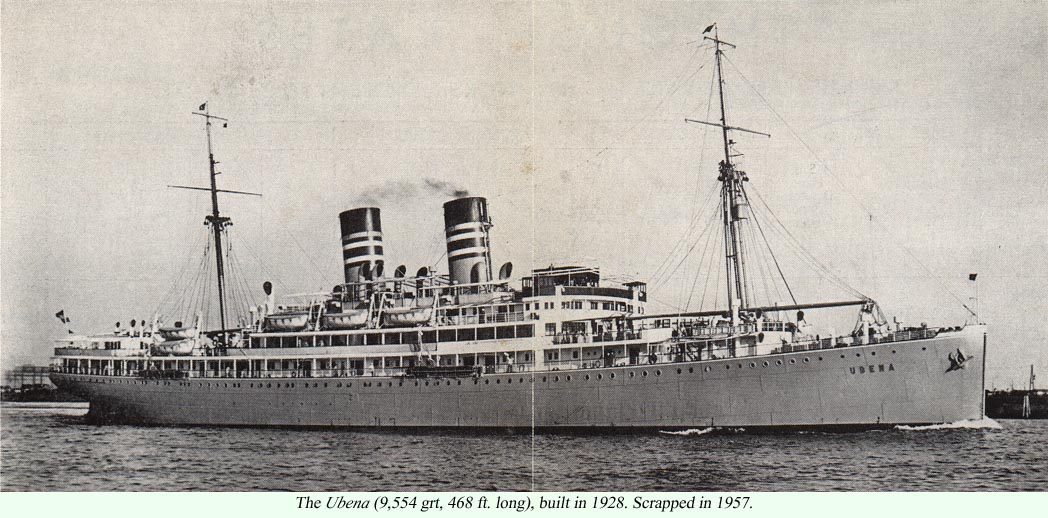View Larger Map
It was a beautiful German East Africa Line ship, the “Ubena.” In the same third class cabin with me was a Church of England monk (celibate), Reverend Winters, who had been working with natives near Nelspruit. Also in my cabin were two old heavy men, one with Masonic charms headed for Port Said and the other from Durban headed for England. Weather warm and no baths because water too muddy, stewards informed us.
General Hertzog, head of South African government, announced that the country was leaving the gold standard, following the lead of Great Britain. Fortunately I had invested most of my available funds in gold one-pound coins obtained from a Brother Muir who worked in a bank in Johannesburg. This gold therefore commanded a premium. South Africa also announced an increase in its subsidies for exports: wool from 10 to 25 percent; mohair from 10 to 25 percent; fresh fruit from 15 to 20 percent and fresh and frozen meat from 10 to 20 percent.
We sailed from Lorenco Marques January 26th after lengthy loading of freight.
I was up at 6 a.m. next morning exercising and then bathing. Steward called us in turn when bath was ready by signed up schedule. Bath water was warm sea water. One morning he came in to call Rev. Winters to his bath, Winters was kneeling in his bed praying. The steward whacked him on the bottom, saying, “Bad! Bad!” German for “bath! Bath!” The rest of us in the cabin were chuckling. On the voyage up the east coast of Africa I would follow the same routine; early rising, exercise, bath, breakfast, reading scriptures, and whatever was available - playing deck tennis, quoits, table tennis, checkers, or going ashore where possible.
On January 28th, we pulled into the port of Beira, also under the Portuguese, in mouth of two rivers both navigable. Great bars of copper bound for Belgium were among the freight loaded using booms (ships’ derricks) and lighter boats. Other freight loaded: sisal, asbestos in big bags, and copra. Crocodiles are in the rivers, we were told.

Sixteenth Century Fortress of stone imported from Portugal
in small boats of that period and some coral rock.
The only place never captured from the Portuguese in East Africa.
in small boats of that period and some coral rock.
The only place never captured from the Portuguese in East Africa.
Mozambique
January 31, 1932
On January 31st pulled to anchor off Mozambique, on a coral island about a mile and half off the north coast of Portuguese East Africa visited by Vasco De Gama in 1498. Walked into town, saw castle and prison which was extremely hot. Native section very closely built, thatched roofs, walls of bamboo fastened together with cross pieces and plastered over with stoney mixture.

No comments:
Post a Comment